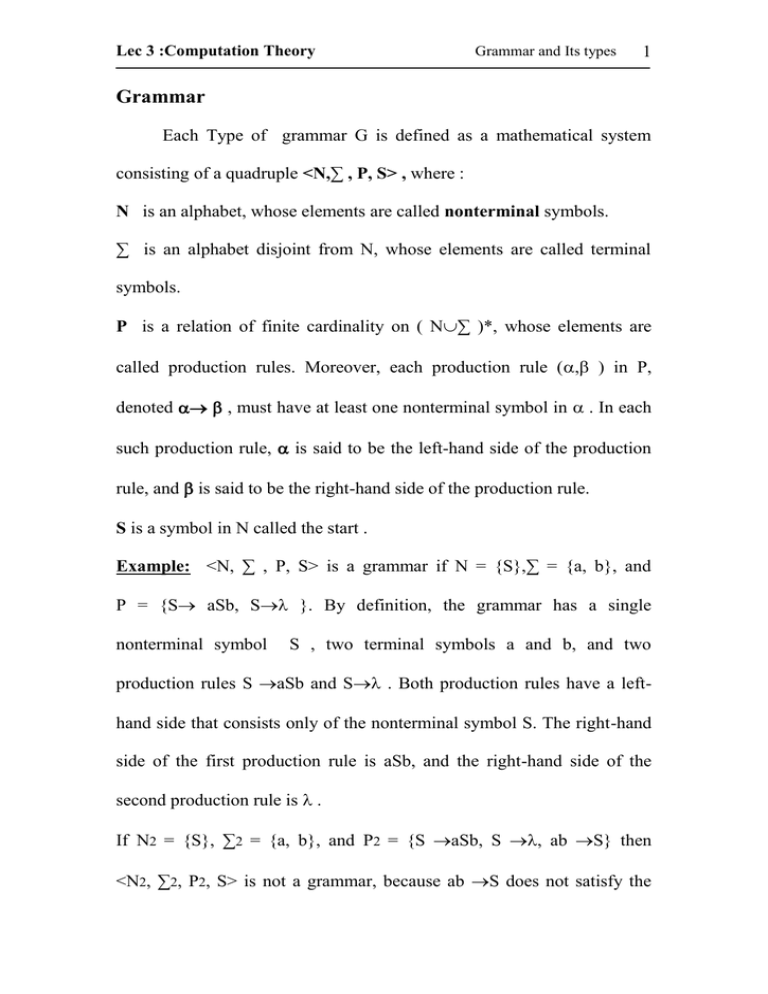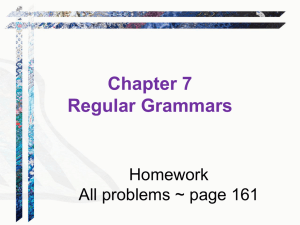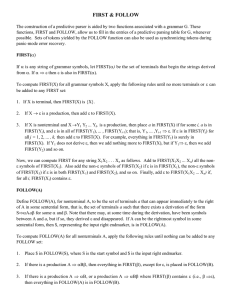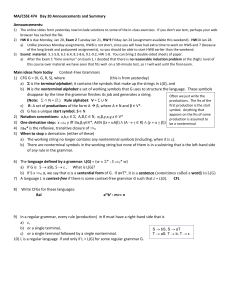Grammar
advertisement

Lec 3 :Computation Theory
Grammar and Its types
1
Grammar
Each Type of grammar G is defined as a mathematical system
consisting of a quadruple <N,∑ , P, S> , where :
N is an alphabet, whose elements are called nonterminal symbols.
∑ is an alphabet disjoint from N, whose elements are called terminal
symbols.
P is a relation of finite cardinality on ( N∑ )*, whose elements are
called production rules. Moreover, each production rule (, ) in P,
denoted , must have at least one nonterminal symbol in . In each
such production rule, is said to be the left-hand side of the production
rule, and is said to be the right-hand side of the production rule.
S is a symbol in N called the start .
Example: <N, ∑ , P, S> is a grammar if N = {S},∑ = {a, b}, and
P = {S aSb, S }. By definition, the grammar has a single
nonterminal symbol
S , two terminal symbols a and b, and two
production rules S aSb and S . Both production rules have a lefthand side that consists only of the nonterminal symbol S. The right-hand
side of the first production rule is aSb, and the right-hand side of the
second production rule is .
If N2 = {S}, ∑2 = {a, b}, and P2 = {S aSb, S , ab S} then
<N2, ∑2, P2, S> is not a grammar, because ab S does not satisfy the
Lec 3 :Computation Theory
Grammar and Its types
2
requirement that each production rule must contain at least one
nonterminal symbol on the left-hand side.
Type of Grammars: or hierarchy of Grammar
The four classes are Type 0 summarized in the table below:
X is at least one
nonterminal or more and
zero terminal or more
Y is any string
X is
at least one
nonterminal or more and
zero terminal or more
Y is any string with length
at least the length of X
X is one nonterminal
Y is any string
X is nonterminal
YtN
,YNt,Yt
where t is terminal and N
is nonterminal
Example
SabNSab\ aaN
Nbb
Type 0
SabaaSb
Type 1
SaSb\ab
Type 2
SaS\a\Sa
Type 3





